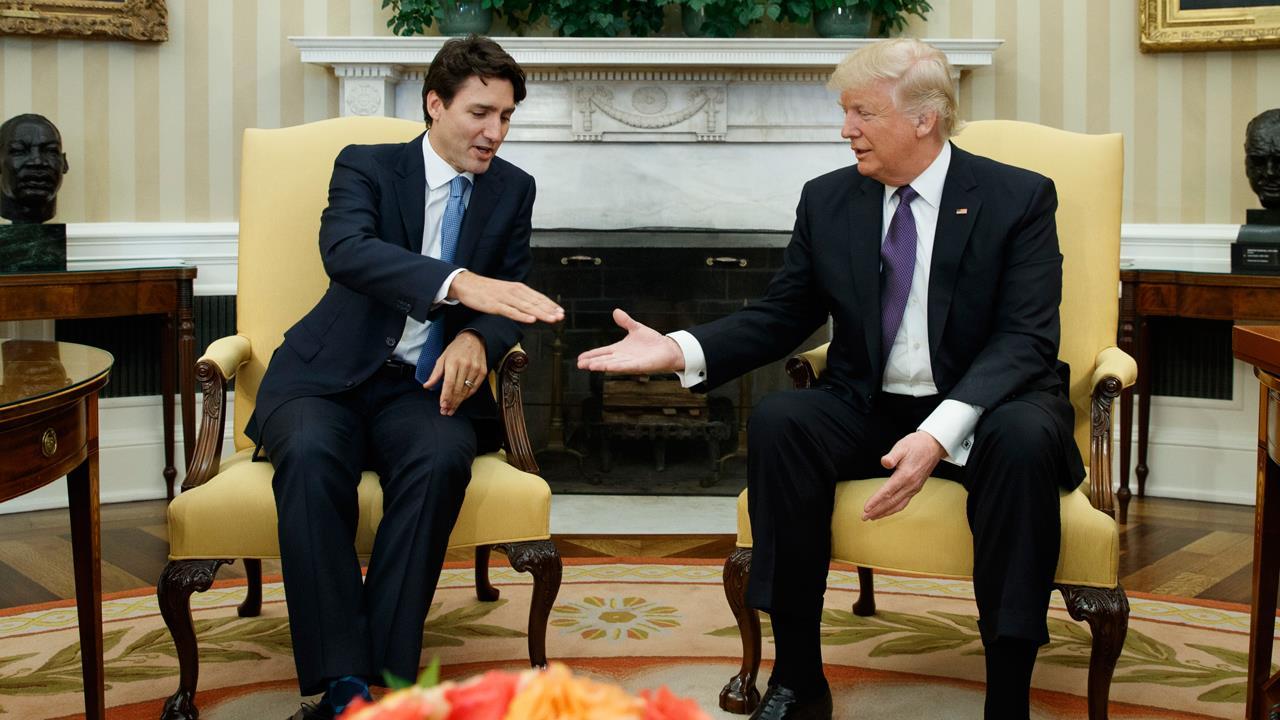Trump officials optimistic Canada will join US, Mexico trade deal
The U.S. and Mexico may have snubbed Canada when they negotiated a pact on Monday to replace the North American Free Trade Agreement on Monday without their northern neighbor, but Trump administration officials remained optimistic that Canada would join the deal ahead of a looming Friday deadline.
“We’re hearing there is a lot of progress being made, and it’s possible we’ll be able to see something sometime soon,” Kevin Hassett, the chairman of the Council of Economic Advisers, said on Wednesday. “We’re extremely hopeful that Canada will join.”
President Trump previously suggested that he might leave Canada out of the agreement -- which would be called the “United States-Mexico Trade Agreement” -- and has also threatened to impose another round of tariffs on automobile imports. Canada is the second-biggest trading partner of the U.S., and Mexico is the third.
Canadian Foreign Affairs Minister Chrystia Freeland arrived in Washington on Tuesday, cutting short a trip to Europe, for renewed talks this week. On Wednesday, Freeland told reporters she was hopeful they could make a Friday deadline.
Friday is when U.S. Trade Representative Robert Lighthizer will send a letter to Congress, which starts a 90-day clock for lawmakers to look over the agreement for ratification. Because of “technicalities,” the Friday deadline is a “real thing,” Hassett said.
And while Hassett said he’s hopeful Canada will sign the deal, he also acknowledged political differences that could derail potential progress. Trump, for instance, wants a deal with “zero tariffs, zero non-tariff barriers, fully reciprocal trade,” which is outlined in the U.S.-Mexico trade deal.
“In Canada, that’s more of a difficult political issue for the prime minister, right, because they’ve got dairy farms that are trying to make milk on these farms that are covered in snow, so they have really high costs [and] want to protect them,” Hassett said.
In June, Prime Minister Justin Trudeau said one of the sticking points is the inclusion of a so-called sunset clause, which would limit the lifespan of the agreement to five years. Trump’s insistence of including that in the trade pact drew swift rebuke from Canada and Mexico.
But on Saturday, Mexico’s incoming trade negotiator told reporters the U.S. had softened its stance on the so-called sunset clause, according to Reuters.
“It's going to come out,” Jesus Seade, designated chief negotiator of Mexico's next government, said. “It's no longer what the United States was putting first in any way.”
The decades-old trilateral trade agreement has been a frequent target of Trump, who has criticized large trade deficits the U.S. has with Mexico and Canada, as well as the relocation of American jobs and companies.
U.S. goods and services trade with Canada totaled an estimated $544.9 billion in 2016, with a trade surplus of $11.2 billion.





















